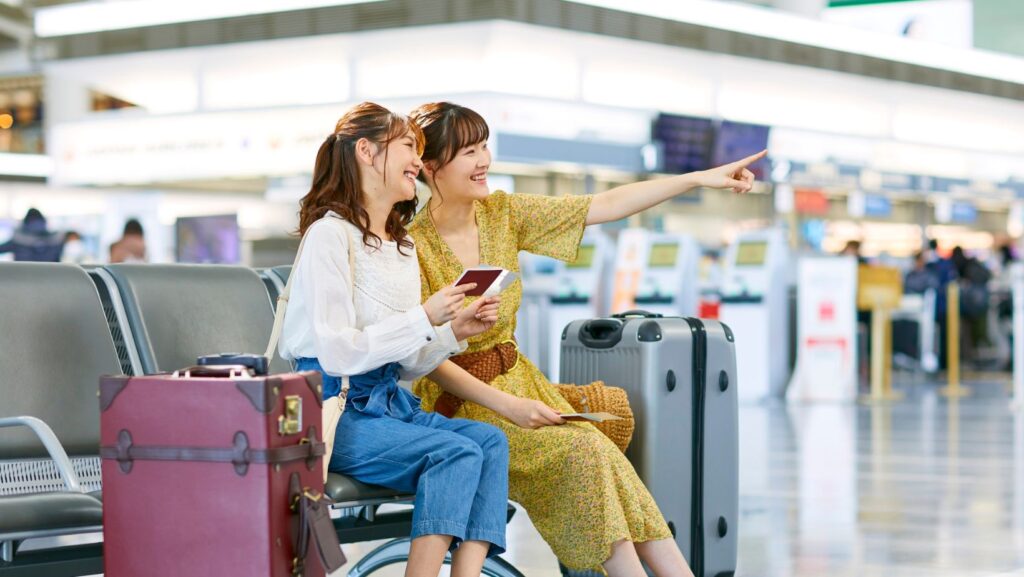Picture this: you’re excitedly discussing a dream vacation with your closest friends, only to realize that while you’re thinking luxury resorts, your buddy is calculating hostel costs, and another friend wants to spend every day hiking while someone else prefers museum visits. This scenario plays out in friend groups worldwide, but it doesn’t have to derail your travel plans or strain your relationships.
The beauty of modern connectivity means we can stay entertained and connected even during the planning phases of our adventures. Whether you’re researching destinations during downtime or looking for ways to unwind after intense planning sessions, activities like using the HitnSpin Mobile App can provide relaxing entertainment while you coordinate the perfect team getaway.
Smart Strategies for Managing Travel Expenses
Effective budget travel tips for groups involve finding creative ways to reduce costs without sacrificing experiences. Shared accommodations like vacation rentals or larger hotel rooms can significantly reduce per-person costs while creating more opportunities for team bonding. Cooking some meals together not only saves money but often becomes a fun group activity and cultural experience.
Transportation costs can be managed through group discounts, shared rides, and strategic planning. Research rates for trains, buses, or rental vehicles. In many destinations, buying attraction passes or city cards as a group provides substantial savings compared to individual purchases. Look for free activities like hiking trails, beaches, public festivals, or self-guided neighborhood walks that provide rich experiences without straining anyone’s budget.
Managing travel expenses also involves smart timing and booking strategies. Traveling during shoulder seasons, booking accommodations early for better rates, and being flexible with dates can dramatically reduce costs for everyone. Create a general fund for shared expenses like groceries, gas, or group activities to simplify money management and avoid awkward individual calculations throughout the trip.
Communication Techniques for Coordination
Essential strategies for maintaining harmony during group trip planning:
- Establish clear communication channels and regular check-ins throughout the planning process
- Create shared documents where everyone can contribute ideas, preferences, and concerns
- Rotate decision-making responsibilities so no one person bears the entire planning burden
- Set ground rules for how disagreements will be handled respectfully
- Plan for both group time and individual space during the trip
- Discuss expectations about sharing costs, responsibilities, and decision-making upfront
These communication strategies help prevent misunderstandings and ensure everyone feels heard and valued in the planning process. Regular team calls or messages keep everyone informed and engaged while distributed responsibilities prevent planning fatigue.
When planning your team adventure, consider these preparation steps that accommodate different needs and budgets:
- Research destinations with varied price points for accommodations, food, and activities
- Create a shared Pinterest board or document where everyone can contribute ideas and inspiration
- Set a realistic timeline for planning that allows for thorough research and booking
- Identify potential compromises and alternatives for major decisions before conflicts arise
- Plan backup activities for different weather conditions or unexpected changes

This preparation approach ensures your group is ready to handle challenges and make the most of opportunities that arise during your travels. Taking time to plan thoroughly prevents stress and disappointment later.
Accommodation and Activity Solutions for Mixed Budgets
Finding the right balance for group accommodations requires creativity and compromise. Vacation rentals often provide the best value for groups while offering amenities like kitchens that help manage food costs. However, some travelers may prefer the privacy and services of hotels. Consider booking accommodations in the same area so friends can choose their comfort level while remaining close for team activities.
| Budget Level | Accommodation Options | Activity Suggestions | Food Solutions |
| Low Budget | Hostels, shared vacation rentals | Free museums, hiking, beaches | Grocery shopping, cooking together |
| Medium Budget | Mid-range hotels, private vacation rentals | Paid attractions, guided tours | Mix of restaurants and home cooking |
| High Budget | Luxury hotels, premium rentals | Premium experiences, private guides | Fine dining with group meal options |
| Mixed Group | Nearby accommodations at different levels | Tiered activity options | Combination approach with shared meals |
This framework helps groups find solutions that work for everyone without forcing anyone to spend beyond their comfort zone. The key is maintaining group cohesion while respecting individual financial boundaries.
Activity planning becomes easier when you focus on experiences that provide value at different price points. Many destinations offer free or low-cost cultural experiences alongside premium options, allowing friends to share the same location while choosing their level of investment.
Building Stronger Friendships Through Inclusive Travel
The most rewarding group travel experiences happen when everyone feels valued and included regardless of their budget constraints. This requires ongoing attention to community dynamics and willingness to adjust plans when someone feels left out or financially stressed. The goal is creating memories together, not proving who can spend the most money or do the most activities.
Successful travel with friends often involves small gestures that show consideration for different circumstances. This might mean choosing restaurants with varied price ranges, suggesting free activities when someone seems stressed about expenses, or finding ways for higher-budget travelers to occasionally treat friends without creating awkwardness or obligation.
Remember that the strongest friendships often develop through shared challenges and creative problem-solving. When your group successfully navigates budget differences and conflicting interests, you’re not just planning a trip – you’re building skills for navigating life’s complexities together. These experiences often strengthen relationships and create inside jokes and stories that last far longer than any individual vacation memory.
Create Adventures That Bring Everyone Together
Group travel success isn’t measured by how much you spend or how many activities you cram into each day. The best trips happen when friends feel comfortable being themselves, contributing their unique perspectives, and supporting each other through the inevitable challenges of travel. When you prioritize inclusion and communication over perfection, you create space for authentic experiences that strengthen your friendships.
Take time to celebrate the diverse interests and financial situations within your friend team as assets rather than obstacles. These differences can lead to discoveries, experiences, and perspectives that none of you would have encountered traveling alone. Start planning your next group adventure with openness, creativity, and commitment to ensuring everyone can participate meaningfully in the journey ahead.


